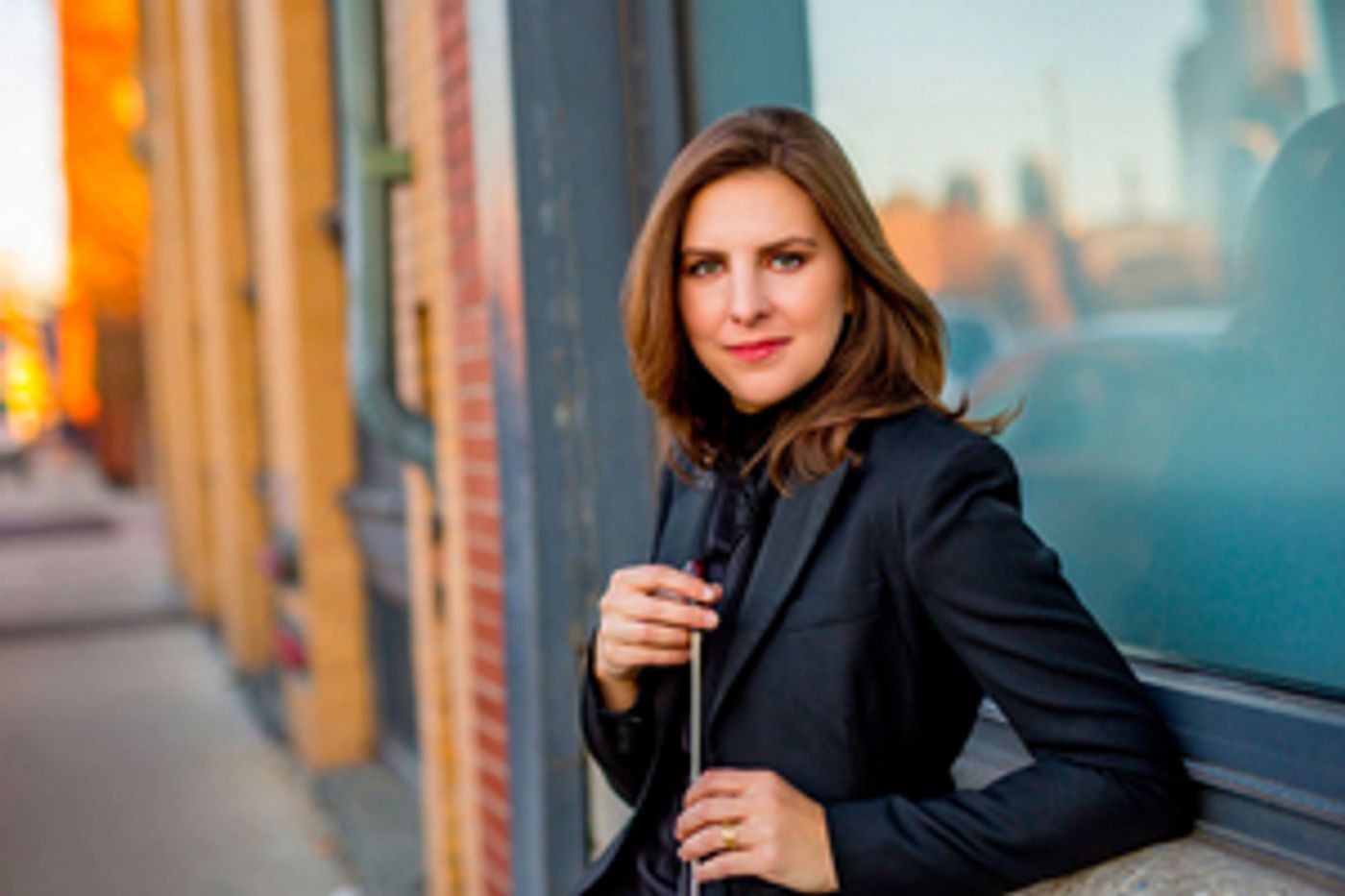Review: RI Phil springs into summer with its ORCHESTRA SHOWCASE
The Rhode Island Philharmonic’s chamber ensemble had a spring in its step at its last subscription concert of the 2020-21 season.

Was it the guest conductor's palpable energy? Was it the audience's obvious excitement about taking in a rare in-person performance? Or was it musicians' relief that a full season of masked, socially distant performing was coming to an end?
Whatever it was, the Rhode Island Philharmonic Orchestra's chamber ensemble sure had a spring in its step, musically speaking, at its last subscription concert of the 2020-21 season.
The so-called "Orchestra Showcase," conducted by Chicago Opera Theater Music Director Lidiya Yankovskaya, featured pieces both classic and modern, both dreamy and frenetic, both accessible and challenging, to attract audiences of every taste. There was Copland, Shostakovich, Debussy and Mendelssohn. And each piece felt right for our turbulent, transitional times, but in very different ways.
The standout of the night was a chamber symphony arrangement of Dmitri Shostakovich's String Quartet No. 8, believed to be the composer's response to Josef Stalin's Great Purge in the Soviet Union. From the podium, Yankovskaya, who is Russian American, said she felt a personal connection to the piece: Her grandmother spent seven years in a Stalinist prison camp and never found out why, even after she was released. Yankovskaya dedicated the piece "to all people who have continued to be silenced" - a powerful statement amid a major American reckoning with settler colonialism and the lasting legacy of slavery.
The Phil's pared-down ensemble breathed so much life and longing into the piece. Hearing the quartet performed as a chamber symphony sounds so right: It adds power and pathos to certain key moments, like the descending chromatic scales in the first movement and the hammered series of three notes in the fourth movement, said to represent Soviet Communist Party's infamous tendency to knock three times at future prisoners' doors in the middle of the night. But it also adds quiet to the most intimate sections. When, in the fourth movement, the full force of the chamber orchestra's "three knocks" suddenly gave way to silence, then a plaintive violin solo by concertmaster Charles Dimmock, I confess I got chills.
Harpist Hyunjung Choi nearly stole the show from Shostakovich with her spellbinding solo work on Claude Debussy's "Sacred and Profane Dances." This is Debussy at the height of his musical impressionism: It's almost all word-painting, with no real theme or melody to speak of. Yet when the orchestra and the soloist play it well - and both did - it's mesmerizing. I've never been more grateful to have watched a concert from my living room, rather than from the floor of the VETS: The livestream cameras zoomed in on Choi, allowing virtual audiences to fully appreciate her dexterity and artistry.
The concert opened with Aaron Copland's "Quiet City," a nice musical evocation of the last 14 months in downtown Providence. Copland's sparse, concise musical language requires tight precision, and the orchestra mostly delivered with the exception of one or two passages. The piece offered visual reminders of the extraordinary circumstances: Trumpet soloist Joseph Foley lifted a flap on his mask to play, exchanging melodies with English horn player Jane Murray, whose bell was covered in black fabric to avoid spraying droplets on other members of the orchestra. Both played beautifully, especially given the unusual challenges they faced.
The concert closed with Felix Mendelssohn's lively and energetic String Symphony No. 2, written when the composer was just 12. The orchestra played with almost adolescent abandon, and that's not an insult. Their enthusiasm, bubbling up and nearly boiling over, mirrored the relief and cautious excitement many Rhode Islanders have begun to feel as they've secured their vaccines and hugged their loved ones once again. I left the livestream with a smile on my face, daring, for the first time in more than a year, to feel hope for what's to come.
Reader Reviews
Videos


